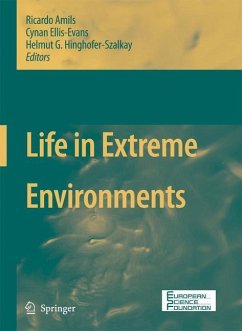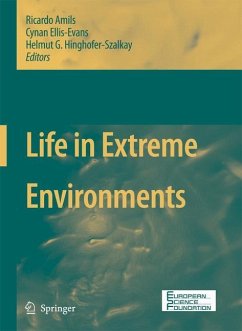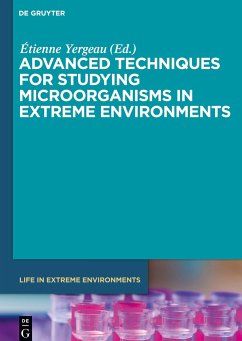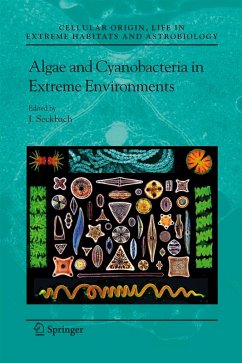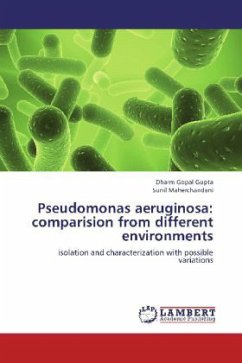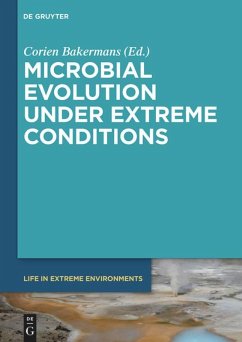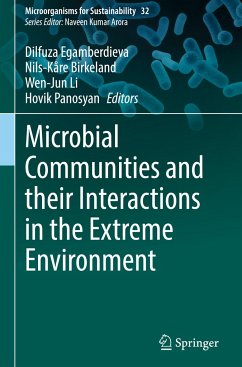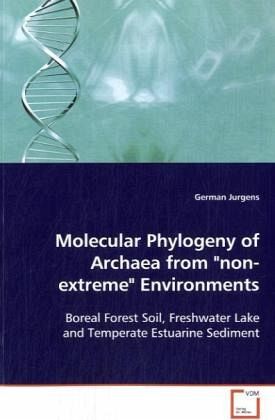
Molecular Phylogeny of Archaea from "non-extreme" Environments
Boreal Forest Soil, Freshwater Lake and Temperate Estuarine Sediment
Versandkostenfrei!
Versandfertig in 6-10 Tagen
32,99 €
inkl. MwSt.

PAYBACK Punkte
16 °P sammeln!
Despite our increasing knowledge of the scale ofmicrobial diversity, most microbes observed innatural environments remain uncultivated, theirecology and functional roles are unknown and ourunderstanding of the composition of the naturalmicrobial world is therefore rudimentary. However,modern molecular methods provide an easy way ofsurveying microbial biodiversity using ribosomal RNAgene sequences retrieved directly from theenvironment. The most significant finding from theapplication of such new approaches was the discoveryof high numbers of novel archaeal phenotypes. Before,it was considered ...
Despite our increasing knowledge of the scale of
microbial diversity, most microbes observed in
natural environments remain uncultivated, their
ecology and functional roles are unknown and our
understanding of the composition of the natural
microbial world is therefore rudimentary. However,
modern molecular methods provide an easy way of
surveying microbial biodiversity using ribosomal RNA
gene sequences retrieved directly from the
environment. The most significant finding from the
application of such new approaches was the discovery
of high numbers of novel archaeal phenotypes. Before,
it was considered that Archaea were restricted to
specialized "extreme" environments characterized by
high temperature, salinity, pH, or strict anoxic.
Over the last decade, a ubiquitous distribution of
"non-extreme" Archaea in a wide variety of temperate
and cold terrestrial and aquatic environments was
demonstrated. The results presented in this thesis
include the discovery of unexpected and new Archaea
in boreal forest soil, freshwater forest lake and
temperate estuarine sediment samples. We suggest that
Archaea are ecologically much more successful and
globally important than previously thought.
microbial diversity, most microbes observed in
natural environments remain uncultivated, their
ecology and functional roles are unknown and our
understanding of the composition of the natural
microbial world is therefore rudimentary. However,
modern molecular methods provide an easy way of
surveying microbial biodiversity using ribosomal RNA
gene sequences retrieved directly from the
environment. The most significant finding from the
application of such new approaches was the discovery
of high numbers of novel archaeal phenotypes. Before,
it was considered that Archaea were restricted to
specialized "extreme" environments characterized by
high temperature, salinity, pH, or strict anoxic.
Over the last decade, a ubiquitous distribution of
"non-extreme" Archaea in a wide variety of temperate
and cold terrestrial and aquatic environments was
demonstrated. The results presented in this thesis
include the discovery of unexpected and new Archaea
in boreal forest soil, freshwater forest lake and
temperate estuarine sediment samples. We suggest that
Archaea are ecologically much more successful and
globally important than previously thought.



